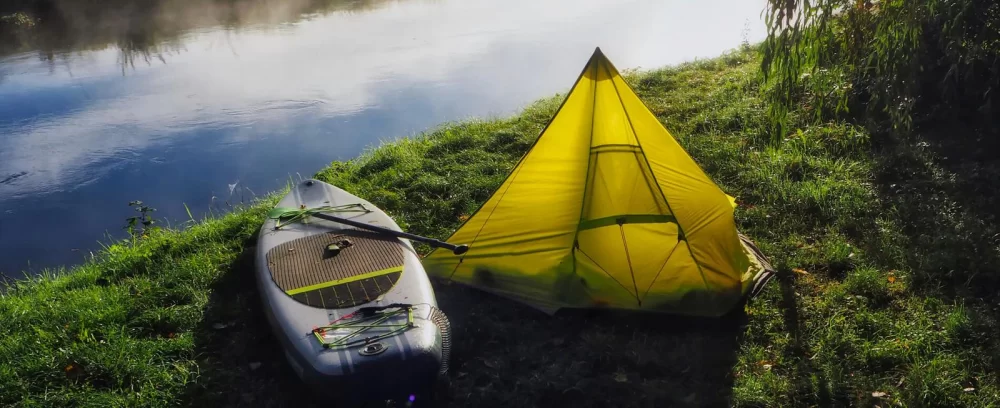Discover the ultimate guide to wilderness camping in the United States with practical tips, real stories, and expert advice. Learn how to prepare, explore, and enjoy nature safely. Visit Pine Cliff Resort for the best camping gear and services.

- Wilderness-Camping-Overview
- Essential-Preparations-for-Backcountry-Adventures
- Iconic-US-Destinations-for-Wilderness-Camping
- Gear-and-Resources-for-a-Successful-Camping-Trip
- Real-Experience-from-the-US-Backcountry
1. Understanding Wilderness Camping in the United States
Wilderness camping in the United States offers a unique opportunity to disconnect from urban life and immerse oneself in the vast, unspoiled natural landscapes that span the country. Unlike traditional campground camping, wilderness or backcountry camping involves setting up camp in remote areas where amenities are minimal or nonexistent. This style of camping demands greater self-reliance, thorough preparation, and respect for nature. From the towering peaks of the Rocky Mountains to the dense forests of the Pacific Northwest, the U.S. is a treasure trove of wilderness experiences waiting to be explored.
Embracing wilderness camping means more than just pitching a tent; it’s about understanding the environment, practicing Leave No Trace principles, and gaining skills to navigate and survive in nature. The sense of freedom and connection to the environment often cited by seasoned campers is what makes these adventures so rewarding.
1.1 Defining Backcountry Camping and Its Appeal
Backcountry camping is essentially wilderness camping with a focus on traveling beyond developed trails and facilities. This appeals to adventurers seeking solitude, pristine nature, and the thrill of self-sufficiency. The challenge and beauty of finding a perfect campsite far from other people adds to the allure.
1.2 Why Choose Wilderness Camping?
For many, it’s an escape from the noise and distractions of modern life. Wilderness camping offers a chance to reset mentally and physically, with fresh air, star-filled skies, and the sounds of wildlife. The physical activity involved—from hiking to setting up camp—also contributes to a holistic outdoor experience.
2. Essential Preparations for Backcountry Adventures
Preparation is key to a safe and enjoyable wilderness camping experience. Unlike traditional camping, where facilities and help are nearby, backcountry campers must be fully prepared for self-sufficiency.
2.1 Planning the Route and Campsite Selection
Before heading out, detailed planning of the route is essential. This includes studying maps, understanding terrain, estimating travel time, and knowing water sources along the trail. Selecting a campsite that minimizes environmental impact is part of responsible camping ethics.
2.2 Safety and Emergency Preparedness
Carrying a first aid kit, knowing how to use a compass or GPS, and having a communication plan are vital. Wilderness campers should inform someone of their itinerary and expected return. Understanding local wildlife risks and weather patterns enhances safety.
2.3 Physical and Mental Readiness
Backcountry trips can be physically demanding. Preparing through regular exercise and mental conditioning helps manage unexpected challenges. Staying calm and adaptable is often the difference between a good trip and a difficult one.
3. Iconic U.S. Destinations for Wilderness Camping
The United States is home to some of the world’s most breathtaking wilderness camping spots. Each region offers unique landscapes and challenges that attract campers from across the globe.
3.1 The Sierra Nevada and Yosemite Backcountry
Yosemite National Park’s wilderness areas, including the High Sierra, are renowned for rugged beauty, alpine lakes, and granite cliffs. Backcountry permits and adherence to park regulations ensure preservation of these fragile ecosystems.
3.2 The Appalachian Trail and Great Smoky Mountains
For those seeking lush forests and rolling mountains, the Appalachian Trail offers miles of wilderness camping with community shelters and designated campsites. The Great Smoky Mountains provide biodiversity and historic cabins, enriching the experience.
3.3 Alaska’s Remote Wilderness
Alaska represents the ultimate frontier with vast, untouched wilderness. Camping here requires expert skills, including bear awareness and weather preparedness. The solitude and scenery are unmatched.
4. Gear and Resources for a Successful Camping Trip
The right gear can make or break a wilderness camping trip. Investing in quality equipment and knowing how to use it ensures comfort and safety.
4.1 Essential Camping Gear
A durable tent, sleeping bag rated for expected temperatures, and a reliable stove are core items. Lightweight backpacks designed for long treks help distribute weight efficiently. Water filtration systems are crucial for safe hydration.
4.2 Clothing and Footwear
Layering is key to adapt to changing weather conditions. Breathable, moisture-wicking fabrics combined with waterproof outer layers keep campers dry and comfortable. Sturdy hiking boots prevent injuries on rough terrain.
4.3 Finding the Best Equipment and Support
For those unsure where to start, Pine Cliff Resort offers an extensive selection of wilderness camping gear and expert advice tailored to U.S. backcountry adventures. Their knowledgeable staff can help match equipment to your trip’s specific demands, enhancing safety and enjoyment.
5. Real Experiences and Stories from the U.S. Backcountry
Stories from seasoned wilderness campers help illuminate the reality of backcountry adventures. One memorable account comes from a hiker traversing the John Muir Trail in California, who describes how unexpected weather forced quick adaptation and reliance on compact gear. This experience reinforced the importance of preparation and resilience.
Another tale highlights a family camping trip in the Adirondacks, where children learned firsthand about local flora and fauna, creating lifelong memories and a deep respect for nature. Such stories showcase the transformative power of wilderness camping, beyond just the physical journey.
These narratives remind us that while wilderness camping requires effort and respect for the environment, it rewards with unparalleled connection to nature and personal growth.
For those inspired to embark on their own wilderness camping journey, resources like Pine Cliff Resort provide not only top-quality gear but also guidance to help novices and experts alike prepare for unforgettable experiences in the wild.
HM3
Spring Creek Trail, Fort Collins, CO 80526, USA
Visit Location PageColdwater Lake Campground
569 Lake Dr, Coldwater, MI 49036, USA
Visit Location Page